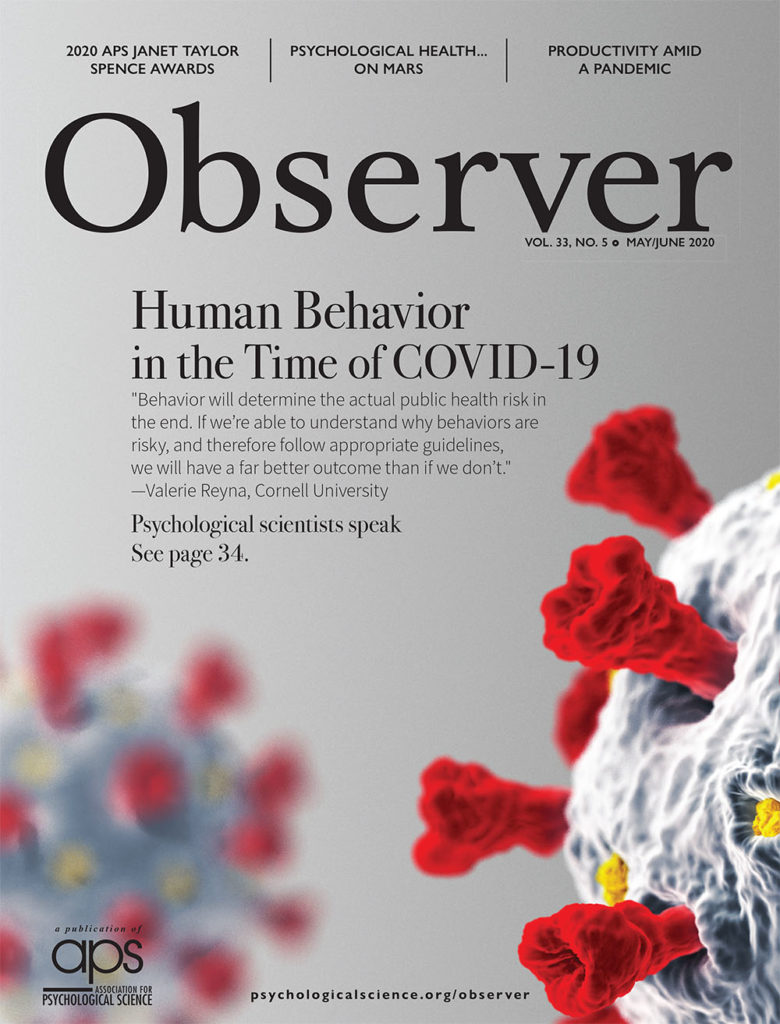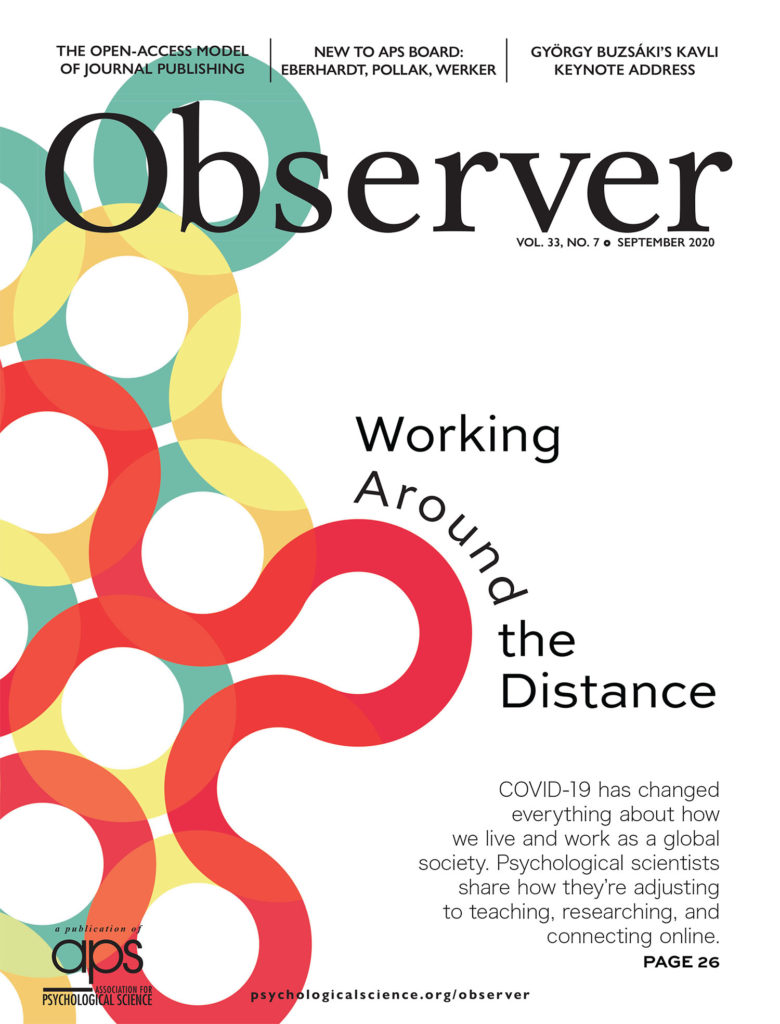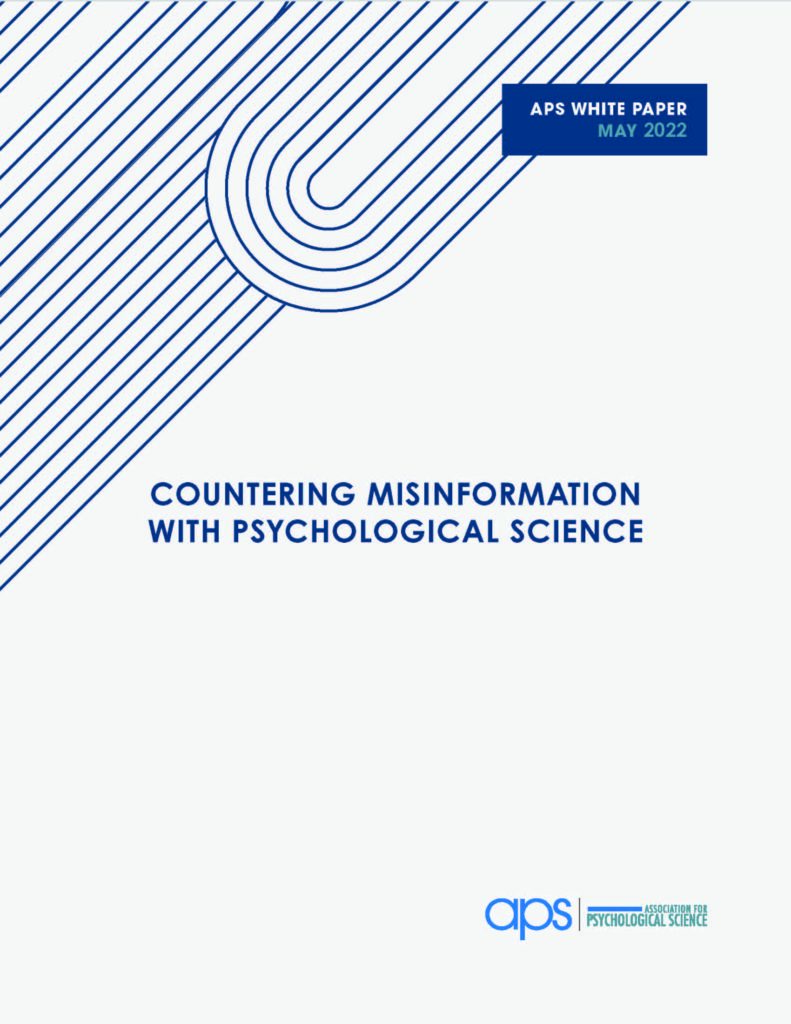Featured
The COVID-19 Pandemic: A Psychological Science Timeline
In early 2020, many countries declared a public health emergency due to the rapid spread of COVID-19. Supported by international organizations, these countries created packages of measures to address the emergency and contain the spread of the disease. Whatever the measure—whether the use of masks, restrictions to social gatherings, the closure of schools and businesses, or restrictions on domestic and international travel—they all came with challenges, mainly associated with how to implement them and their possible effects post-pandemic. From the beginning, psychological scientists (and APS) contributed to helping policymakers, public health organizations, and the public understand these challenges and use the lessons learned along the way to help mitigate the impact of future public health crises.
In May 2023, COVID-19 remains a reality around the world, but the pandemic itself has largely receded thanks to vaccines, and many countries, including the United States, have called to officially end the public health emergency. Life is almost “back to normal.” Here’s a timeline of some of the ways in which APS and psychological science more broadly responded to COVID-19.
March 2020: Pandemic is declared
After more than 118,000 cases in 114 countries and 4,291 deaths, the World Health Organization declared COVID-19 a pandemic. (Source: CDC timeline)
March 2020: Expert roundtable explores how psychological science can inform the impact of COVID-19
APS convened a virtual roundtable of four psychological scientists to discuss the psychological dimensions of COVID-19 and how it was affecting both society and individuals. “This is a situation that can have both positive and negative effects as a function of it being a collective crisis,” said one speaker. “On the positive side, there is a sense that we’re in it together and we see many amazing examples of people supporting one another. On the negative side, we see some people respond to this with a sense that they need to ‘protect their own’ and it is ‘us versus them.'” They also produced many other insights on the pandemic and research-based actions to minimize its impact. Listen to or read the transcript.
March 2020: “Backgrounder” series provides media with expert insights on relevant issues
Through a series of brief informational backgrounders, APS supported media reporting and public knowledge directly by outlining the science on many of the psychological factors that can help the public understand and collectively combat the spread of COVID-19. Each backgrounder features the assessments, research, and recommendations of a renowned subject-matter expert in the field of psychological science. Backgrounders covered topics including human resilience, the effects of isolation, working remotely, the impact on marriage and relationships, and conspiracy theories. See the full backgrounder series.
May 2020: Observer focuses on human behavior in the time of COVID-19
APS’s member magazine, the Observer, collected and synthesized comments from addressing the collective crisis created by the pandemic. From moral responsibility to exposure to anxiety and coping mechanisms, psychological scientists shared findings on how psychological science can inform behavior during a pandemic and how to address collective challenges. In addition, then-APS President Lisa Feldman Barrett wrote about a key area of scientific research that could benefit physicians, epidemiologists, and virologists on the front lines of the COVID-19 pandemic: the connection between mind, body, and illness. Read Feldman-Barrett’s column. See the complete issue.
June 2020: APS launches APS Microgrants for Online Learning
In response to the pandemic’s effect on teaching and learning, APS launched an initiative through the APS Fund for Teaching and Public Understanding of Psychological Science to facilitate the development and dissemination of best practices for teaching psychological science online. The Microgrants for Online Learning program provided grants of up to $1,000 to support projects in six general categories, including webinars and virtual meetings, support for individual classes, scholarship of teaching and learning, and antiracist curricula. The APS Teaching Fund Committee selected 25 projects for funding. Read about some of the sponsored projects.
September 2020: Observer investigates how members are dealing with the pandemic
APS surveyed the field to better understand the impact of the pandemic on labs and classrooms, as well as the strategies being used to overcome the challenges associated with moving research and learning from in-person laboratory settings and classrooms to online platforms. More than 600 responses from students, researchers, and faculty on every continent except Antarctica shed light on the challenges and creative solutions psychological scientists experienced and implemented. Among other challenges, several respondents noted that cheating and plagiarizing became rife in the switch to online learning. Read the article. See the complete issue.
June 2021: APS forms Global Collaboration on COVID-19
The collaboration convened psychological scientists and other behavioral science experts to assess how the field contributed to combating the COVID-19 pandemic and identify gaps in our understanding that should be addressed through new research. Over the next 2 years, six working groups with specialists from different areas of expertise within and outside of psychological science met to discuss and present research and recommendations to the science community, policymakers, and/or the public. A key overarching question that animated their work: “How could psychological science research have been better integrated into the COVID-19 response, and how could it be better used to address future public health challenges?” Learn about the APS Collaboration on COVID-19.
December 2021: Webinar reviews “lessons learned” from psychological science
Researchers from the APS Collaboration on COVID-19’s working group on mental health and COVID-19 presented their research and recommendations related to how COVID-19 had affected mental health of children, adolescents, and younger and older adults, including those who were diagnosed with a mental illness before the pandemic started, among other topics. Key findings included recommendations to avoid global generalizations, study long-term effects, consider social support and mitigating racial disparities as protective factors, develop coping strategies to tackle loneliness, and address couples’ conflicts to potentially mitigate substance use. Watch the webinar recording/read the recap.
January 2022: Webinar explores intersection of psychology and biology in COVID-19
A working group of the APS Global Collaboration on COVID-19 focused on the intersection of psychology and biology in COVID-19 convened 11 leading scientists to discuss how psychobiological factors could facilitate pandemic recovery. Among other findings, the researchers highlighted how psychological and social factors affect the biological responses to viral infections and vaccinations. They also discussed how psychological and social factors can predict susceptibility to infection, how racial and ethnic disparities are mirrored in disparate infection and disease outcomes, how pre-pandemic factors at the country level help to predict pandemics’ outcomes, and the importance monitoring populations’ distress levels, among other recommendations. View the webinar recording/read the recap.
March 2022: COVID-19 Collaboration offers recommendations to White House on community mental health
Experts from the APS Global Collaboration on COVID-19 responded to a call for input on digital health from the White House Office of Science and Technology Policy with a letter suggesting that community mental health could be improved by the development and implementation of evidence-based psychological treatments offered through technology such as smartphone apps and text messaging. The response noted that evidence-based psychological treatments, or EBPTs—short-term, rigorously tested mental health interventions—could be delivered via digital health technology. Read about this response and see the letter.
April 2022: APS releases white paper on countering misinformation with psychological science
Motivated in part by a surge in misinformation related to COVID-19 and vaccine hesitancy and resistance, this paper targeted science communicators, policymakers, and journalists with the best and newest psychological research on misinformation published in the APS journals. Topics covered included a review of the state of modern misinformation and its impact on vaccine uptake, factors that can make people vulnerable to misinformation, and science-based solutions. See the white paper.
May 2022: In-person workshop explores what the new normal of working during a pandemic
Researchers from a working group of the APS Global Collaboration on COVID-19 convened in-person for a preconference workshop at the 2022 APS Annual Convention dedicated to examining work during a global pandemic. Presenters shared research from perspectives including big-data analyses, research methodologies, individual differences, and group inequities related to jobs, well-being, and social status. Some conclusions included the importance of continuing to evaluate the long-term health and disability impacts of the pandemic on workers and the economy and the need to fix pre-pandemic inequalities. Read the recap.
July 2022: Webinar examines how the pandemic altered college admissions
Experts from another working group of the APS Global Collaboration on COVID-19 discussed how the pandemic had changed college admissions and how those changes might inform the future of college admissions. Topics included the need to create more equitable forms of evaluating college applications and to stop seeing diversity and academic excellence as mutually exclusive goals. Speakers also discussed the strengths and weaknesses of test-based admission processes. View the webinar recording/read the recap.
September 2022: Webinar explores interplay between fundamental memory science and public health
This discussion, convened by the multidisciplinary working group of the APS Global Collaboration on COVID-19 focused on the interplay between fundamental memory science and public health, explored how psychological science might contribute to understanding digital contact tracing, maximizing its capabilities in the future and otherwise improving preparedness for future pandemics. Key findings included the recommendation to increase the success of digital contact tracing and its public acceptance by enlisting psychological scientists to help design and implement tools for contact tracing. View the webinar recording/read the recap.
November 2022: Issue of Clinical Psychological Science examines effects of COVID-19 on mental health
This special issue presented eight articles focusing on different aspects of mental health in the context of the global pandemic. The articles looked at the experiences of different target populations—such as healthcare workers, Black Americans, and parents—and across different countries. Researchers examined various kinds of relationships and the factors that exacerbated the pandemic’s negative effects or conferred protection from these effects, such as social support or access to green space. Read about and access this issue of Clinical Psychological Science.
May 2023: Post-pandemic period begins
By spring 2023, countries including the United States had effectively declared that the pandemic had ended, although COVID-19 would continue. As international scientific and economic collaborations explore strategies to prevent or mitigate future pandemics, there is hope that public health officials will incorporate more insights from psychological science. In the meantime, working groups of the APS Global Collaboration on COVID-19 and APS more broadly will continue to monitor the pandemic’s effects and to advance findings on how psychological science can more effectively inform solutions to future pandemics.
Feedback on this article? Email apsobserver@psychologicalscience.org or login to comment. Interested in writing for us? Read our contributor guidelines.











Comments
Washington University in St Louis
Member (2 Years)
Member Since 03/18/2023
This article is interesting, but it glosses over a serious issue: Long Covid. For the many people with Long Covid, the pandemic is far from over. These people face health challenges that may continue throughout their lives. APS could provide a good public service by considering how Long Covid impairs people’s cognitive and emotional functioning. For example, it would be great to see an article about the “brain fog” that is associated with Long Covid and about how our field’s knowledge of memory and cognition can contribute to understanding it and treating it. Another important topic to consider is risk assessment. Why do people think so differently about the risk of being involved in a plane crash (one in 1.2 million flights) and the risk of getting Long Covid (one in every 10 Covid infections)? What does the field know about people’s perception of risk and their willingness to take protective measures, and how does this play out with Covid and Long Covid? Insights from psychological science can help with future pandemics, as the authors point out. But they are sorely needed with the Long Covid that has resulted and is continuing to result from the current pandemic. I hope to see action in the near future on this topic.
APS regularly opens certain online articles for discussion on our website. Effective February 2021, you must be a logged-in APS member to post comments. By posting a comment, you agree to our Community Guidelines and the display of your profile information, including your name and affiliation. Any opinions, findings, conclusions, or recommendations present in article comments are those of the writers and do not necessarily reflect the views of APS or the article’s author. For more information, please see our Community Guidelines.
Please login with your APS account to comment.